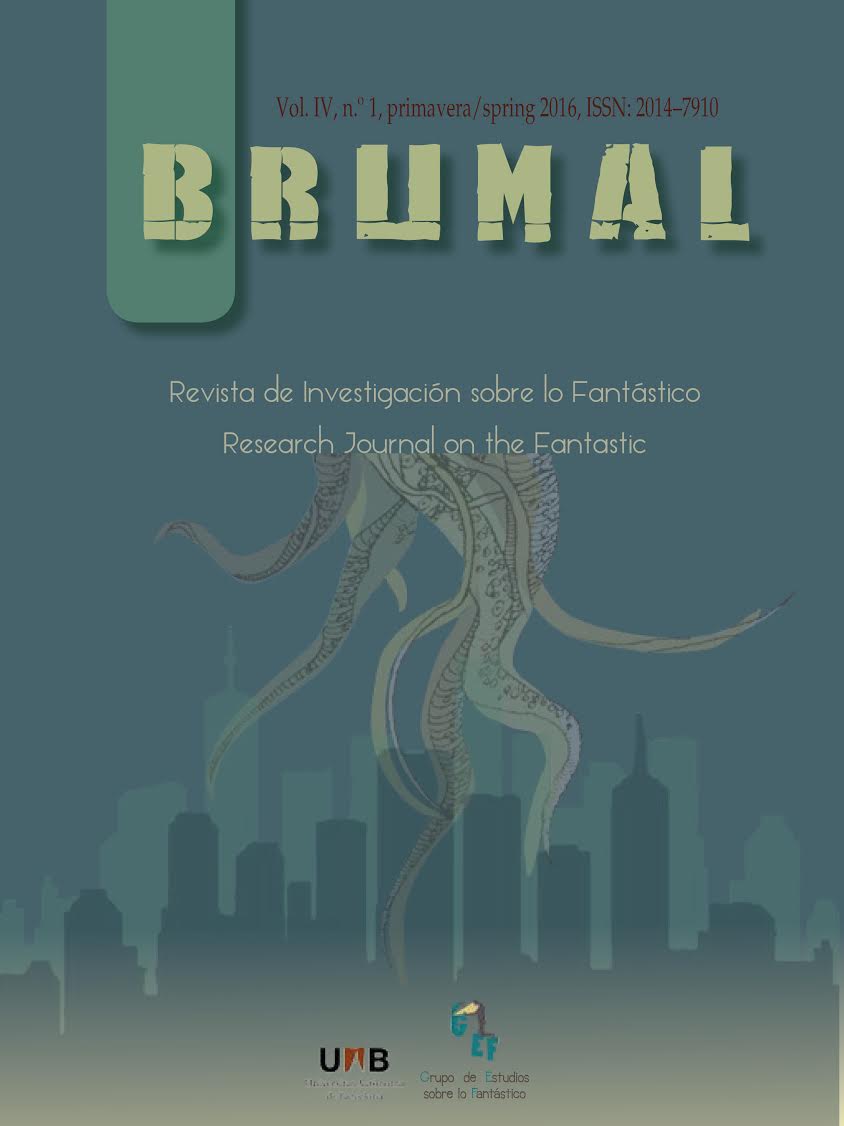Theoretical physics from fantastic theory: a study about reality and its fractures
Article Sidebar

Main Article Content
Quite often fantastic literature has been studied using ideas from theoretical physics in order to verify how the development of the latter modifies the reader's perception of the former. Instead, this article proposes the opposite: this article will explore theoretical physics using the ideas from the fantastic. The core principle here is that both reflect on the reality and fracture it, changing the reader's reality paradigm. While physics changes it from reality, using to it the principles of the mathematics, the fantastic does this using (and fracturing) a fictional space.
Article Details
Drets d'autor
Los autores que publican en esta revista están de acuerdo con los siguientes términos:- Los autores conservan los derechos de autor.
- Los textos publicados en esta revista están sujetos –si no se indica lo contrario– a una licencia de Reconocimiento 3.0 España de Creative Commons. Puede copiarlos, distribuirlos, comunicarlos públicamente, hacer obras derivadas y usos comerciales siempre que reconozca los créditos de las obras (autoría, nombre de la revista, institución editora) de la manera especificada por los autores o por la revista. La licencia completa se puede consultar en http://creativecommons.org/licenses/by/3.0/es/deed.es.
- Los autores pueden establecer por separado acuerdos adicionales para la distribución no exclusiva de la versión de la obra publicada en la revista (por ejemplo, situarlo en un repositorio institucional o publicarlo en un libro), con un reconocimiento de su publicación inicial en esta revista.
- Se permite y se anima a los autores a difundir sus trabajos electrónicamente (por ejemplo, en repositorios institucionales o en su propio sitio web) antes y durante el proceso de envío, ya que puede dar lugar a intercambios productivos, así como a una citación más temprana y mayor de los trabajos publicados (Véase The Effect of Open Access) (en inglés).
Raúl Molina Gil, Universitat de València
Raúl Molina Gil cursó el grado en “Estudios hispánicos: lengua española y sus literaturas” en la Universitat de València y, posteriormente, el “Máster en Literatura Comparada y Estudios Culturales” de la Universitat Autònoma de Barcelona. Actualmente, escribe una tesis doctoral sobre polémicas críticas y poéticas contemporáneas en España dentro del Departamento de Teoría de los Lenguajes y Ciencias de la Comunicación de la Universitat de València. Ha publicado varios artículos de investigación y reseñas sobre poesía española contemporánea y sobre literatura comparada en diferentes revistas académicas. A su vez, ha participado en varios congresos y jornadas sobre estas temáticas. Forma parte, desde sus inicios, de la secretaría de redacción y comunicación de la publicación periódica académica Kamchatka. Revista de análisis cultural, vinculada al Departamento de Filología Española de la Universitat de València. Es editor y prologuista de No sé si no en la herida. Antología de poetas líquidos.
Articles més llegits del mateix autor/a
- Álvaro López Fernández, Raúl Molina Gil, La oscura memoria: cine negro y brechas fantásticas en Enterrar a los muertos (2005) y Las serpientes ciegas (2008) [Una contraposición] , Brumal. Revista de Investigación sobre lo Fantástico = Research Journal on the fantastic: Vol. 5 Núm. 1 (2017): The fantastic in comics
- Raúl Molina Gil, De lo subatómico a lo inmenso: Sobre la posible influencia de la Teoría de la Relatividad y la Mecánica Cuántica en lo fantástico , Brumal. Revista de Investigación sobre lo Fantástico = Research Journal on the fantastic: Vol. 3 Núm. 2 (2015)